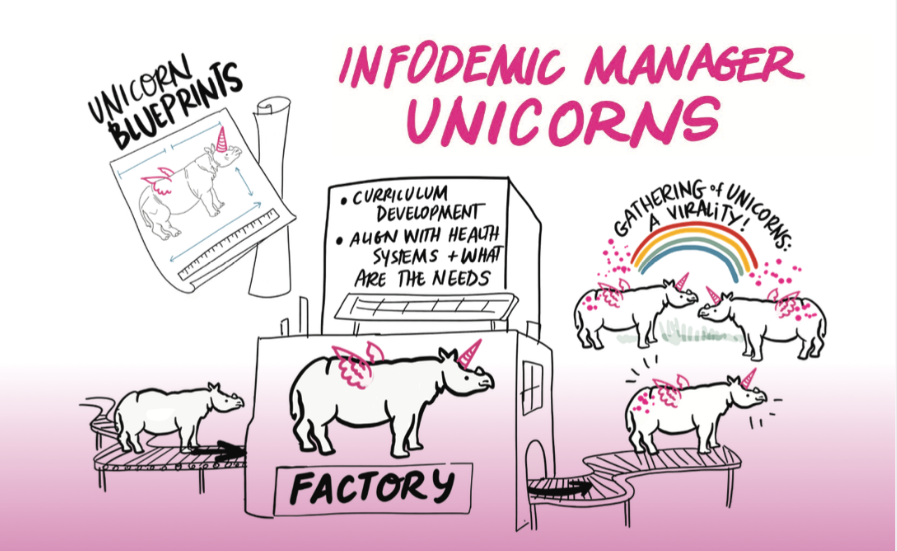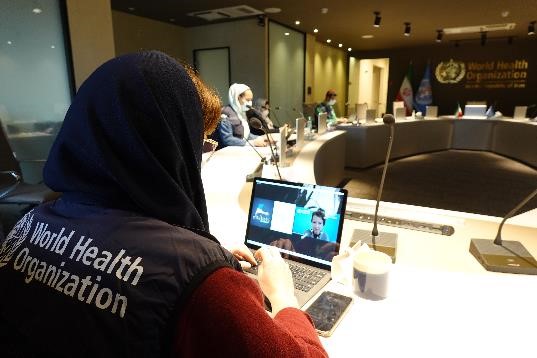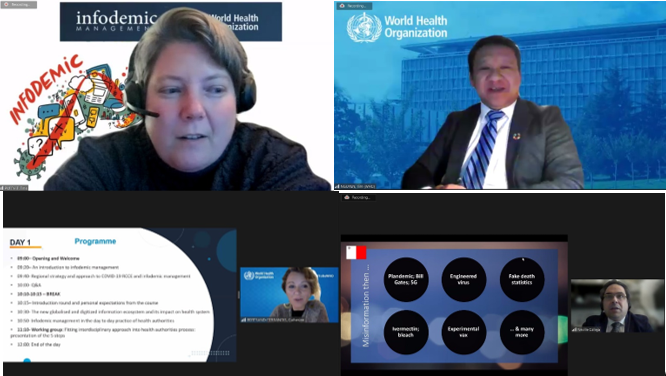 The official poster of WHO's infodemic manager's training
The official poster of WHO's infodemic manager's training
Monday 11 April 2022 – In order to strengthen national capacity in public health emergency preparedness, the World Health Organization (WHO) in the Islamic Republic of Iran organized a capacity-building training workshop on infodemic management facilitated by a team of WHO experts from WHO headquarters.
The first of its kind across the globe, the 4-day training of trainers was held 7-10 March using a hybrid modality at the WHO country oOffice in Tehran and gathered over 90 team leaders and experts from the Ministry of Health and Medical Education, and all universities of medical sciences in the country in virtual attendance.
The training was led by Mr Tim Nguyen and Ms Tina Purnat from the WHO Health Informatician and Infodemic Management Team, and was facilitated by esteemed professionals in the field headed by a WHO Consultant on the Infodemic Management Team at the Department of Epidemic and Pandemic Preparedness and Prevention Ms Catherine Bertrand-Ferrandis.
 The first of its kind across the globe, the 4-day training of trainers was held 7–10 March using a hybrid modality at the WHO country office in Tehran. Photo: WHO/Islamic Republic of Iran
The first of its kind across the globe, the 4-day training of trainers was held 7–10 March using a hybrid modality at the WHO country office in Tehran. Photo: WHO/Islamic Republic of Iran
The workshop aimed to enhance existing capacities in understanding infodemics and what we can do about them now in the midst of the COVID-19 pandemic and in the future. Participants were exposed to a broad spectrum of infodemic management skills and topics focused on skills needed to apply infodemic management interventions and practice to promote resilience of individuals and communities to the infodemic, including misinformation, and to promote self-efficacy of individuals for self-protective health behaviours. The training encompassed both global and region-specific topics in the infodemic and health misinformation.
“I’m very glad to have these experts from Geneva, Cairo and Islamic Republic of Iran coming together to see how we are going to collectively overcome some of the barriers existing in infodemic management of the COVID-19 response,” said WHO Representative in Islamic Republic of Iran in his opening remarks of the workshop. “As WHO's Director- General Dr Tedros Adhanom has said, "We are facing two pandemics, the COVID-19 pandemic, and the information pandemic, which we call an infodemic.”
Expressing the criticality of living in an age of social media in which even a young child can access different channels online, Dr Hussain stressed the importance of infodemic management under the government of risk communication and community engagement to improve health outcomes for the public as the infodemic influences the community mindset more negatively than positively.
The workshop aimed to prepare and empower infodemic managers to measure and monitor the impact of infodemics during health emergencies, detect and understand the spread and impact of infodemics, respond and deploy interventions that protect and mitigate the infodemic and its harmful effects, evaluate infodemic interventions and strengthen resilience of individuals and communities to infodemics, and promote the development, adaptation and application of tools for the management of infodemics, as well as being able to train more future infodemic managers.
 Speaker delivers key notes during the virtual Infodemic managers' training, from top left: Ms Tina Purnat, Mr Tim Nguyen, Ms Catherine Bertrand-Ferrandis and Mr Neville Calleja.
Speaker delivers key notes during the virtual Infodemic managers' training, from top left: Ms Tina Purnat, Mr Tim Nguyen, Ms Catherine Bertrand-Ferrandis and Mr Neville Calleja.


